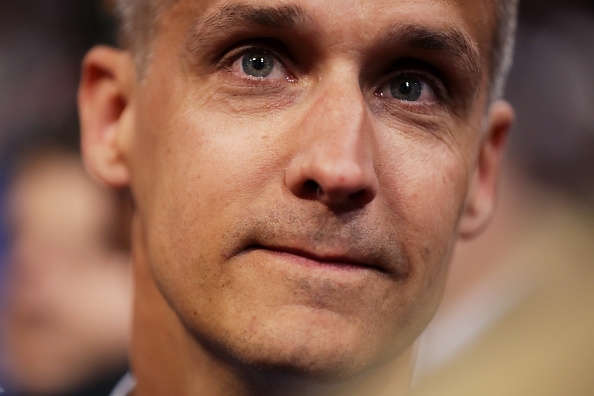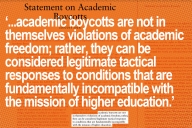You have /5 articles left.
Sign up for a free account or log in.

Corey Lewandowski
Getty Images
The University of Chicago likes to boast of its commitment to academic freedom and the exchange of idea as absolute. A dean set off a national debate in August by sending a letter to new students, warning them not to expect "safe spaces" at the university and that Chicago does not cancel controversial speakers who have been invited to campus.
So somewhat surprisingly, Chicago finds itself in the middle of a debate over a controversial speaker who will be appearing today. The speaker is Corey Lewandowski, who was President Trump's campaign manager during the Republican primaries that put him on the path to the White House. But only some of the debate is of the standard "Should he be allowed to speak?" variety. Much of the discussion is over the way he will speak -- in an off-the-record, no-journalists-allowed session with students. Critics -- some of whom defend the right of Lewandowski to appear -- say all the rhetoric about the free exchange of ideas requires public awareness of what Lewandowski says.
The university is focusing its public comments on the right of Lewandowski to appear and the wide variety of political views reflected in speakers who come to Chicago each year. Officials also note that the off-the-record approach is one used by courses in the university's Institute of Politics, and is nothing new. Chicago distinguishes between public speeches, which are open to all, and visits to fellows of the institute. Lewandowski will be the guest of a fellow, Robert Costa of The Washington Post, who will ask questions of his visitor, even if they are off the record.
An editorial in The Chicago Maroon, the student newspaper, noted that the institute has long held such events. But the editorial questioned whether these encourage true discussion of which the university boasts or just create "a chummy club room" for politicians and future politicians.
The editorial also called Lewandowski "a uniquely bad guest to take off the record."
The Maroon explained, "It does not make sense for the IOP to put him in a room with students and remove the most powerful check on inappropriate behavior: the ability of the press to make it known to the public. He ran an influential campaign that stretched the truth and flat-out lied countless times. We know this because he was on the record when he did so, and the media documented it. It’s also hard to justify why any fellows seminar should be off the record. During an off-the-record seminar, a fellow or a guest can do or say anything, and everyone in the room has to pretend like it never happened."
Several student groups at Chicago are vowing to protest today and say Lewandowski never should have been invited.
“Nothing about a firm commitment to free expression obliges us open our doors to (much less to provide platforms for) those who incite hatred and violence against refugees, immigrants and minorities -- that is, against our students, teachers, co-workers and neighbors,” says a letter sent by student groups to the university.
The letter notes that Sean Spicer, Trump's press secretary, spoke at Chicago before the inauguration. And the letter suggests that Trump's aides should not be welcome at the university.
"By hosting figures like Spicer and Lewandowski, the Institute of Politics suggests that the ideas and ideologies they represent are debatable positions within the range of normal politics. Indeed, holding these events as closed-door collegial 'conversations' suggests that such positions are not only debatable, but legitimate and respectable. They are none of those things," the letter adds.
The university released the following statement in response to the letter: “The University of Chicago Institute of Politics is nonpartisan and since its inception has hosted hundreds of speakers from across the political spectrum, including supporters and vocal critics of the Trump administration. With any administration, we would be remiss if we did not invite guests who could provide insights into the administration’s thinking and approach to governing. In Wednesday’s seminar, students will have the opportunity to question Corey Lewandowski on these and many other topics related to the Trump campaign. Consistent with the values of the university and the IOP, people are free to contest, criticize and protest views expressed on campus so long as they do not obstruct or interfere with the freedom of others to express their views.”








